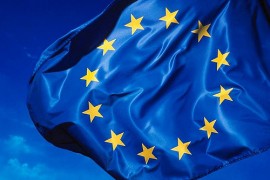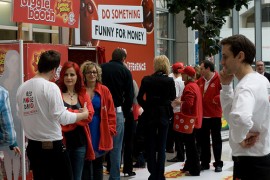BBC Chairman ‘disgracefully’ stonewalls EU Scrutiny Committee
BBC ‘Pays double the rate for their taxis’
A decision by BBC Trustees to reject a complaint about the BBC’s EU coverage was a ‘farce’
A decision by BBC Trustees to reject a complaint about the BBC’s EU coverage was a ‘farce’, leading Eurosceptic MPs Kate Hoey and Philip Hollobone have said.
The complaint – based on research by Newswatch – centred on an edition of Newsnight last January which covered David Cameron’s decision to announce a radical overhaul of EU policy to include a referendum on withdrawal.
Mr Hollobone, who has written to BBC Trustees attacking heir ruling, said: “The programme featured 17 Europhiles pitched against one person who supported withdrawal. It was blatant imbalance.
“Yet the BBC says this did not matter because this was not a major news event and they were
therefore gauging reaction to the proposal from politicians and those affected by it. That’s the sort of sleight of hand excuse that shows that the BBC complaints process is completely rotten and stacked against complainants. They make the rules, they interpret them and they kick out most of them on the most spurious reasoning.”
A succession of top BBC executives, including former DG Mark Thompson, and more recently former head of television news Roger Mosey, have admitted that BBC EU coverage has been totally biased against the withdrawal case.
Mr Hollobone added: “Our complaint showed in detail that on the day of this major development in EU-related policy, this edition of Newsnight did not properly take into account the withdrawal case, and indeed went to absurd lengths to stuff the programme full of figures who wanted to shoot down both the idea of a referendum and the case for withdrawal.
“In terms of BBC coverage it was thus par for the course, but the Trustees have now performed a farcical series of contortions to argue the programme was fair”.
He added: “The BBC complaints procedure is clearly not fit for purpose because no-one involved is genuinely independent. It exists to protect the BBC’s back rather than the proper investigation of bias. It’s time for major change”.
Kate Hoey said: “I have grave concerns about how the BBC is going to be impartial during the coming debate on our relationship with the EU and a referendum. Chris Patten as a former EU commissioner really must prove he has left his Europhile position behind him and that he can ensure genuine impartiality”
Read the Newswatch-researched complaint here.
EU ‘Come-out’ Donor Sykes gets Today Roasting
BBC Trustees reject Newsnight EU bias complaint
BBC ‘Enmeshed in Comic Relief’
A BBC Panorama investigation into Comic Relief has shown that the charity invests in tobacco, arms and alcohol, despite its ‘holier-than-thou’ ethical claims and telling the public that every penny it raises goes to the developing world.
The real issue here is not solely Comic Relief’s hypocritical investment policy, but rather the close relationship between the charity and the BBC – something which Panorama or subsequent coverage of its investigation has failed to spotlight or explain.
Every year or so, the corporation clears its schedules for Comic Relief. This is an extraordinary facility and it has led to the charity raising the staggering sum of £909m. It has become so wealthy that it can afford salaries of £130,000+ for senior staff.
The BBC supports Comic Relief not because it is an exceptional charity doing outstanding work, but rather because the corporation regards providing aid to developing countries as the ultimate good. Another reason is that Comic Relief is a cheerleader for schemes that they claim tackle ‘climate change’ – something which the BBC also intrinsically supports, in general reporting, at Trustee level and especially through the BBC World Service, which for decades has staunchly championed both overseas aid and measures to
tackle the perceived threat of ‘climate change’.
The BBC has worked assiduously behind the scenes over the years to support Comic Relief. An example of the cross-fertilisation and BBC cheerleading is that Lord Hastings, a former head of Corporate Social Responsibility at the BBC, was active for almost a decade in promoting the climate change agenda while sitting on the board of Comic Relief.
This rat’s nests cross-over continues to this day. On screen, the BBC doggedly – with clear disregard for normal rules of impartiality – pursues its climate change agenda; at the same time Tim Davie, who was acting Director General of the BBC before Lord Hall assumed the role in the summer, and is now chief executive of BBC Worldwide, has recently been appointed chair of the Comic Relief Trustees. One of his colleagues is another veteran BBC senior executive, the former Controller of BBC1 Peter Salmon.
Photo by KaiChanVong 






